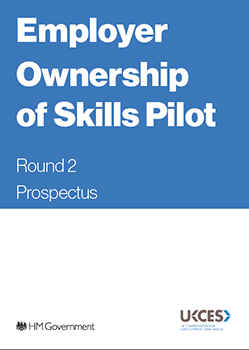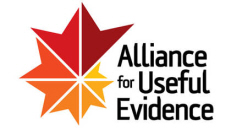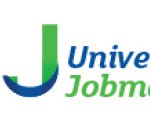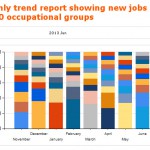Most commented posts
- Getting Universal Jobmatch stats — 4 comments
- Trade unions and economic development — 2 comments

Oct 08 2014
The UK Commission for Employment and Skills has a priority to give employers greater responsibility and ownership in developing the skills needed for growth, not least through the BIS-funded Employer Ownership of Skills (EOS) pilot programme. This is funding innovative, collaborative, employer-led projects capable of transforming the delivery of training and making a significant economic impact. 
Derrick Johnstone was recruited to the UK Commission’s network of well-connected Associates who bring specialist expertise, knowledge and skills into the organisation, to supplement and develop internal capability around the implementation of these funds. He was recognised for his specialism in ‘local and regional skills and employment interventions and economic development’.
Associate roles included:
Tasks have involved reviewing how Local Enterprise Partnerships are developing their role around skills, serving as an assessor in appraising bids under the second round of the Employer Ownership of Skills programme, and seeking early feedback on progress and learning from successful projects.
Derrick’s latest role is in support of the UKCES Futures programme. This promotes innovation in addressing current or anticipated workforce development problems that get in the way of improved business performance.
Permanent link to this article: https://www.educe.co.uk/?p=1120
Sep 13 2014

How are local authorities and their partners using data and evidence to square the circle of dramatic reductions in resources set against rising needs and expectations?
The Alliance for Useful Evidence (A4UE) commissioned Educe to report on how local authorities and their partners are seeking to make more of a difference through better use of ‘real world’ data and evidence. (Download available here and blog here.)
This scene-setting report considers, amongst other things:
It highlights practical steps and the scope for further action, for the Alliance, partners and supporters.
It was one of a series of Alliance outputs in 2013 which sought to stimulate the demand for and use of evidence through promotion of best practice and learning. We have since updated some of the content of ‘Squaring the Circle’ in preparing our joint submission with the Alliance for Useful Evidence to the House of Commons Select Committee for Communities and Local Government (January 2015).
The Alliance for Useful Evidence has now over 2,000 members. It was set up by Nesta, the Economic and Social Research Council and the Big Lottery Fund to “champion the use of and demand for evidence that is rigorous, accessible and appropriate”. The Alliance is working with SOLACE (the Society of Local Authority Chief Executives), and our paper was informed by participation in the 2012 SOLACE Summit.
Nesta are partners with the Cabinet Office and ESRC in setting up a network of What Works Centres, including one for Local Economic Growth, in an initiative launched in March 2013.
Permanent link to this article: https://www.educe.co.uk/?p=1094
Dec 25 2013
In March 2013 the Guardian’s Public Sector Network ran a live chat on plans for What Works Centres, which are being promoted by the government to improve evidence for decision-making in a number of policy fields, including Local Economic Growth.  Derrick Johnstone was one of the panel members, along with Sam Markey from the Cabinet Office, Ruth Puttick from Nesta (author of ‘A NICE for Social Policy’), Jonathan Eastwood from Big Lottery Fund (co-funders of the new centre on Ageing Well), Julie Temperley from the Innovation Unit, and Phil Sooben from the ESRC (co-funders with BIS and CLG of the Local Economic Growth centre).
Derrick Johnstone was one of the panel members, along with Sam Markey from the Cabinet Office, Ruth Puttick from Nesta (author of ‘A NICE for Social Policy’), Jonathan Eastwood from Big Lottery Fund (co-funders of the new centre on Ageing Well), Julie Temperley from the Innovation Unit, and Phil Sooben from the ESRC (co-funders with BIS and CLG of the Local Economic Growth centre).
You can find out more about the Centres here and follow the Guardian discussion here. Some key points were pulled out by the Guardian in a round up.
Permanent link to this article: https://www.educe.co.uk/?p=1155
Dec 20 2013
The Prospects Trust is a well-established local charity working with people who have learning disabilities. They provide training and work opportunities in horticulture, organic market gardening, and off-site garden services. They were one of the runners-up in the National Lottery ‘People’s Millions’ competition in 2013. 
Recent years have seen the Trust grow, not least in the number of co-workers assisted by personal support workers. The time was right in Autumn 2013 for staff and trustees to come together for a strategy workshop facilitated by Derrick Johnstone. Participants took stock of the current position of the Trust and its ethos, and considered its future direction as a social enterprise. Actions agreed included steps to strengthen business development and people management functions, necessary given the Trust’s expansion, and to provide greater opportunities for support workers to progress.
Permanent link to this article: https://www.educe.co.uk/?p=1233
Jun 06 2013
Archive post: Universal Jobmatch was replaced by Find a job on 14 May 2018.
Have you tried to use Universal Jobmatch to access data on job vacancies? If so, you may have been shocked and dismayed by what you found.
Universal Jobmatch (UJ) is intended to be a “new best of breed online service” for jobseekers and employers, intended to transform DWP’s labour market services, automatically matching jobseekers to jobs based on their skills and CV. It is run by Monster, on a £15m contract over four years. It is a potentially very valuable source of data, and the contract specification included requirements for LMI summary tools. UJ data replaced those from the Jobcentre Plus notification system which ceased in November 2012, and was expected by the Department of Work and Pensions to provide a more comprehensive picture and offer improvements in how the data can be accessed and used. Possible UJ analyses include vacancies by industry and occupation; numbers of employers with vacancies; and qualification levels amongst jobseekers and levels required by employers.

However, closer examination of UJ raises many concerns, several of which have recently surfaced on the Labour Market Statistics Group on StatsUserNet. The serious deficiencies are very unfortunate at a time when there are increasing concerns about skills mismatches, the quality of jobs and careers advice, and LEPs working with partners on skills strategies and local EU growth programmes.
First, there are issues about how the UJ statistical reports function works – with no guidance and descriptions of the data (metadata) provided. Drop down menus for local authority areas stop part way through the alphabet (tough if you’re after East Devon on one and Kingston upon Thames on another). You can derive top ten rankings, eg, for occupational groups – which generates a bar chart where you need to hover your cursor to see what the bars contain. You have the option to download into Excel, and all this provides is a picture and no data.
 Secondly, UJ does not use conventional classifications, for geography, industry or occupation. The contract spec for UJ expected the use of Standard Industrial and Standard Occupational Classification (SIC & SOC) codes, but UJ currently uses Monster’s own taxonomy. Monster’s US origins are evident in the report on qualifications held by jobseekers where ‘Some High School Coursework’ and ‘High School or equivalent’ are categories. User interfaces are, however, tailored to Britain: when employers post vacancies, they are asked to select job location regions, though these correspond more to ITV broadcasting (Anglia, Tyne-Tees, etc) rather than administrative regions. Analysis of the industry breakdown of vacancies is made problematic by the high proportion which feature under ‘Staffing/Employment Agencies’, rather than the sector concerned. Looking at data for Hertfordshire in March, for instance, showed 55% of all vacancies in this category.
Secondly, UJ does not use conventional classifications, for geography, industry or occupation. The contract spec for UJ expected the use of Standard Industrial and Standard Occupational Classification (SIC & SOC) codes, but UJ currently uses Monster’s own taxonomy. Monster’s US origins are evident in the report on qualifications held by jobseekers where ‘Some High School Coursework’ and ‘High School or equivalent’ are categories. User interfaces are, however, tailored to Britain: when employers post vacancies, they are asked to select job location regions, though these correspond more to ITV broadcasting (Anglia, Tyne-Tees, etc) rather than administrative regions. Analysis of the industry breakdown of vacancies is made problematic by the high proportion which feature under ‘Staffing/Employment Agencies’, rather than the sector concerned. Looking at data for Hertfordshire in March, for instance, showed 55% of all vacancies in this category.
Thirdly, UJ is typically capturing a different profile of vacancies than the previous JCP system, with many more managerial and professional posts and many fewer low skill or no skill vacancies. There are also oddities which seem difficult to explain: the StatsUserNet discussion, for instance, commented on numbers of vacancies for ‘diplomats’ in the Tees Valley and Cumbria.
It’s important to understand how the new system works, combining as it does posts entered by employers, bulk uploads from ‘job warehouse’ sites, and other vacancies ‘scraped’ (by agreement) from the Internet. In this, there is relevant learning to be gained from the USA, where the Department of Labor has supported projects which made use of data using online job postings for real-time LMI. This experience offers a good number of warnings, for instance about the likelihood of duplicated postings, under-representation of jobs in smaller companies and in rural areas, and of variations by sector, locality and level of geographic analysis.
It’s sad that DWP and Monster have not adopted a more open and inviting approach to improving the site – it’s far from co-design principles that get the best out of interactive websites. In the August 2012 DWP Quarterly Statistical Summary, there was an article which explained DWP’s new approach to vacancy statistics, inviting comments and referring to a six-month beta stage.
There was a statement in Parliament (Hansard, 4 June 2013) that DWP and Monster had a timetable for prioritising and implementing improvements, but this had not been made public.
Finally, while these are gripes from a labour market analysis perspective, spare a thought for jobseekers. It’s not difficult to find criticisms of how the system works for them. It’s very serious: Jobseekers Allowance claimants could be required to look for work using Universal Jobmatch , or risk losing their benefit.
Permanent link to this article: https://www.educe.co.uk/?p=1183
Mar 04 2013
Derrick Johnstone facilitated a development day for the Essex OnLine Partnership (EOLP), which brings together the IT teams across the Essex local authorities, Police and Fire to reduce costs, improve information management and develop the quality of IT services. The Partnership has evolved significantly over the years and brought substantial value for its members through cost savings and other benefits, eg, in shared learning and a national profile. The timing of the event was significant: EOLP had reached a crossroads in its development, with questions about the future, about the Partnership’s focus and what will bind partner commitment.
The Partnership has evolved significantly over the years and brought substantial value for its members through cost savings and other benefits, eg, in shared learning and a national profile. The timing of the event was significant: EOLP had reached a crossroads in its development, with questions about the future, about the Partnership’s focus and what will bind partner commitment.
Participants reaffirmed the purpose of EOLP and agreed steps to strengthen collaboration, including work on the next generation of IT infrastructure, recruitment of a new partnership manager, and more concerted action to capture and publicise Partnership impact and benefits. Other themes included the scope to make more of the combined staff resource across the partner authorities and the need for a greater focus on the ‘I’ in IT, as partner organisations seek to gain more from their information assets.
Permanent link to this article: https://www.educe.co.uk/?p=1148